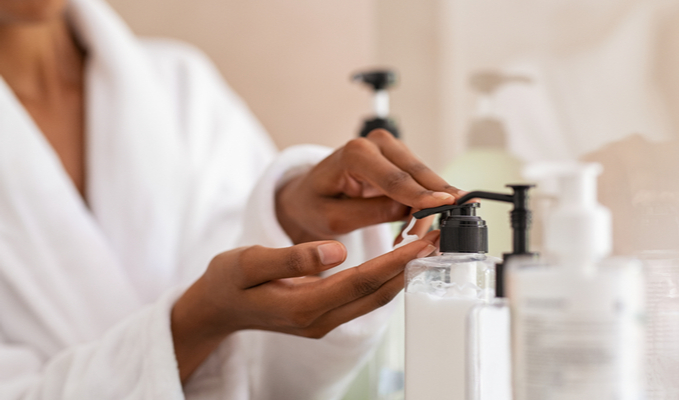
Winter is creeping closer, and for many of us, the change in weather also brings frustrating changes in our skin. "A lot of people who come into the office are itchy and they just don't understand why," says Dr. Mital Patel-Cohen, dermatologist at Summit Health.
Whether it's the drier climate or indoor heating that's irritating your skin, Dr. Patel-Cohen shares her tips for dealing with skin problems that arrive as the temperature drops. Rethink your cleansing routine. "Some winter dryness is weather-related," notes Dr. Patel-Cohen, "but, some of it is the result of our habits." She advises the following:
- Don't take long, hot showers. Few things might sound more appealing on a cold winter day than a hot shower or bath. But, says Dr. Patel-Cohen, "the hotter the water, the more it extracts natural skin oils." So cut back on how long you're in the shower, which is both good for your skin and the environment.
- Cleanse gently. Abrasive loofahs and harsh washcloths irritate already-dry skin. Dr. Patel-Cohen recommends using a bar soap or your hands when applying soap or body wash and avoiding intense scrubbing.
- Consider your cleanser. Gentle soaps, ideally those geared towards sensitive skin, help keep your dry skin in check. Ask your doctor to recommend a cleanser that works well for your skin type.
Moisturize, moisturize, moisturize
You might already be doing this, but Dr. Patel-Cohen suggests the following tips to maximize your results:
- Switch from a light lotion to a heavier cream. While humid summers call for a lightweight moisturizer, winter means it's time to up the ante with a cream-based emollient.
- Coat yourself daily (or more). "The best time to moisturize is after your shower," says Dr. Patel-Cohen. Gently pat your skin dry when you get out (no harsh rubbing) and apply a thick layer of moisturizer. With dry winter weather, "it's totally reasonable to moisturize twice a day," she adds. "At least once a day is recommended."
Adjust treatments If you suffer from skin ailments such as acne, eczema, or psoriasis, the winter weather could affect you to an even greater degree. People using acne treatments may find that their medicine is too drying in the winter, while those with eczema and psoriasis often see flare-ups due to the dry air. Dr. Patel-Cohen advises talking to your doctor before winter arrives, so they can adjust treatments and prescribe alternative lotions before you have a flare-up.
Put on sunscreen
Gray, overcast skies can be deceiving. "Even if it's not sunny and you don't feel hot, you can still get UV exposure," says Dr. Patel-Cohen. Driving or just sitting next to a window exposes you to the sun's rays. "Wear SPF 30 in the winter," advises Patel-Cohen. If you're participating in outdoor sports such as sledding or skiing, increase the coverage to SPF 50. "With those activities, you get tons of sun exposure because of the sun reflection off the snow," she says.
Maintain a healthy lifestyle
While Dr. Patel-Cohen points out that only anecdotal data exists about how diet and exercise affect your skin, it's never a bad idea to focus on eating whole, unprocessed foods and exercising regularly. "Most people believe that healthy, clean eating, exercise, and stress management decrease inflammatory levels in the body," she says. "That's not so easy to study, but it's possible that, if you have higher levels of inflammation in your body, your skin conditions are more likely to be active." One thing is for certain: water helps you from the inside out. Drink plenty of water to help your skin function and appear at its best.
